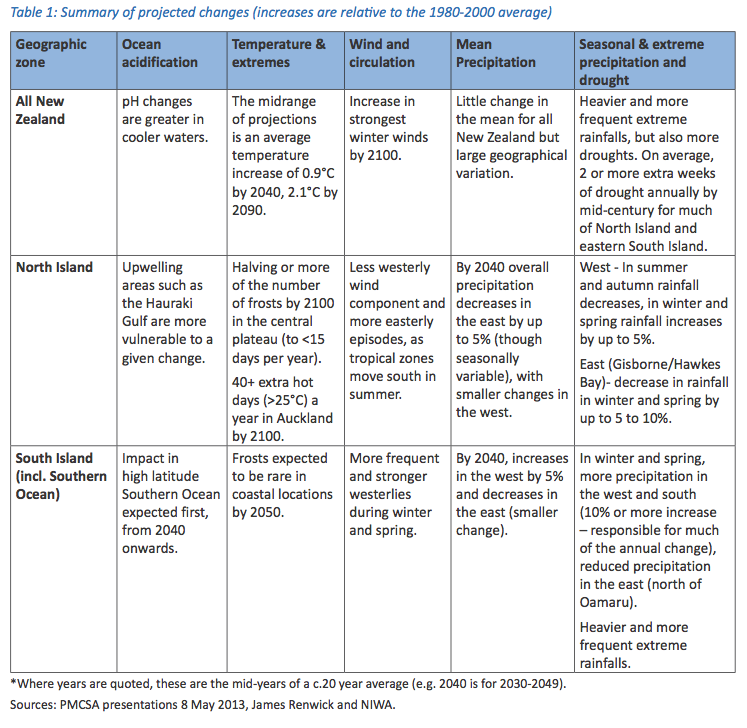The Prime Minister’s Chief Science Advisor, Professor Sir Peter Gluckman, says New Zealand faces significant impacts from climate change in the next 30 to 40 years requiring a risk management approach and constant environmental monitoring of changes across the country.

Sir Peter’s report, New Zealand’s changing climate and oceans: The impact of human activity and implications for the future, was released this week and is available for download here.
It summarises the current state of scientific understanding of global climate change then drills into the issues New Zealand could face in the next few decades due to temperature increases.
Sir Peter writes: “In the intermediate term (over the next 30-40 years), New Zealand will face significant adaptive requirements to cope with these shifts in climate and there will need to be a consequent readjustment in expectations of frequency of extreme events. The impact of change is likely to be greatest in domains unable to adapt quickly or in those areas already close to limits of tolerance.
“These include natural and farming ecosystems evolved to function in current conditions and infrastructure requiring a long lead-time to plan and build, but also areas with high vulnerability such as those already prone to flooding or drought. The magnitude of environmental changes will depend in part on the global trajectories of greenhouse gas emissions and land use change.”
He also addressed the apparent pause in global temperature increase since around 1998 which scientists have recently sought to understand further in the context of the longer term warming trend.
“Any short-term departures from the long-term warming trend can broadly be explained through a combination of other causes of climate variability and inherent lags in the system. That is not to say that our understanding of the global climate is complete; inherent in any scientific assessment of the future is a component of uncertainty. There is no way to completely remove uncertainty, given the nature of climate science and the climate system, but despite this there is strong scientific consensus on the general trends and drivers of recent climate change. The most probable future scenarios are cause for concern.”
While not going into policy responses to the issues climate change pose to New Zealand, Sir Peter posed some questions that the country’s decision makers will have to ask on behalf of us all:
• What is an acceptable level of climate-related risk to society?
• What are the costs and benefits of adaptation or mitigation compared with other priorities?
• How are different stakeholders affected, (either now or in the future)?
